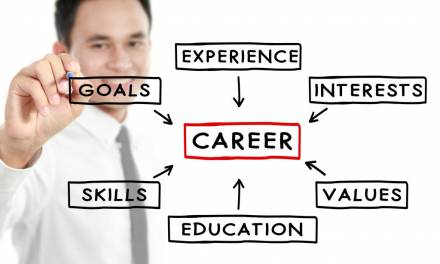The requirement of schools to offer career guidance has become more important since the Education Act 2011 enshrined this in law. As a consequence, many schools have increased the impact of their in-house career guidance tools.
However, teachers themselves have also taken on more of an consultancy role as students seek advice from those their teachers as well as professional career advisers.
This leaves some teachers uncertain about their role in the career development of students and how much they are expected to, and should, contribute in this area.
Relevant knowledge and experience
Teachers have knowledge and experience that can be passed on to students within the context of lessons, as well as in one-to-one informal conversations. In a class, context, then specific subject career advice can include highlighting what applications a subject has in the real world.
This allows pupils to see beyond the classroom and envisage scenarios where they may use the skills they’re using. So, for Geography, for example, a teacher can highlight in passing what careers utilise the data analysis methods they’re utilising in class.
Frequent mentions of real world applications and the benefit of transferable skills can be an effective indirect method of career guidance.
Schools can create connections with local businesses to offer students the opportunity to explore different workplaces on open days, and also invite parents to talk to classes about their careers and what skills and qualifications are needed to be successful in their roles.
Subject-specific careers
Some subjects necessarily lend themselves more effectively to discussion of careers than others. While the real-world applications of chemistry, for instance, are numerous, fitting these into the context of careers can be difficult.
Working context into lesson plans serves multiple purposes – signposting potential career paths is one, while locating the subject as useful in a wider framework can also increase student interest in it.
It’s important, too, for teachers to open their door to informal conversations from pupils. As someone who interacts with a pupil on a regular basis, a teacher is often the first port of call for students with subject-specific career questions.
This allows teachers to offer solicited advice, although they should be careful not to position themselves as a career guidance adviser. Instead, these roles are pastoral and should signpost students to relevant sources if they want to investigate career paths further.
However, keeping the lines of communication open and signalling to students that you, as their teacher, are willing to speak about the wider application of your subject is an excellent way of ensuring any interest remains ignited.
A whole-school approach to career guidance
No school should expect teachers to be a replacement for tailored career guidance. Nor should they be deemed responsible for shoehorning career advice into their classes simply to match the requirements of the Education Act 2011.
There should be a clear and school-wide rationale to career guidance delivery, although teachers can play their own part by embedding real-world applications into their lesson plans and by ensuring that pupils feel comfortable approaching them for advice.
A more detailed analysis on the teacher’s role within career guidance can be found in “Teaching and Careers: The role of school teachers in delivering career and employability learning”. This research was undertaken by University of Derby academics for Teach First in 2015.










